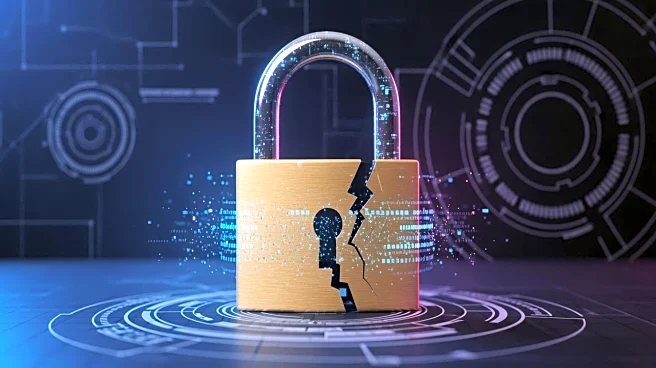What's Happening?
The Louvre museum in Paris experienced a significant security breach, resulting in the theft of over $100 million in jewels. French police have arrested seven suspects, but the jewels remain unrecovered. Reports indicate that the museum's cybersecurity
was compromised, with 'Louvre' being used as a password for video surveillance access. An audit by the French cybersecurity agency ANSSI in 2014 and 2015 revealed multiple security flaws, including outdated software and unguarded access points. The incident underscores the importance of robust password practices and cybersecurity measures.
Why It's Important?
The breach at the Louvre serves as a cautionary tale for organizations worldwide, highlighting the critical need for strong cybersecurity protocols. Weak passwords and outdated systems can lead to significant financial losses and reputational damage. As cyber threats continue to evolve, institutions must prioritize cybersecurity to protect sensitive information and assets. The incident also emphasizes the importance of regular security audits and updates to prevent similar breaches in the future.
What's Next?
Organizations are encouraged to review and strengthen their password policies, utilizing complex combinations of letters, numbers, and symbols. Implementing password managers and conducting regular security audits can help mitigate risks. As the holiday season approaches, individuals are advised to update their passwords to protect against potential cyber threats during increased online shopping activities.
Beyond the Headlines
The Louvre's security breach raises ethical concerns about the responsibility of cultural institutions to safeguard their assets. The incident highlights the need for transparency and accountability in cybersecurity practices. It also serves as a reminder of the broader implications of cyber vulnerabilities, which can affect not only financial assets but also cultural heritage and public trust.

















